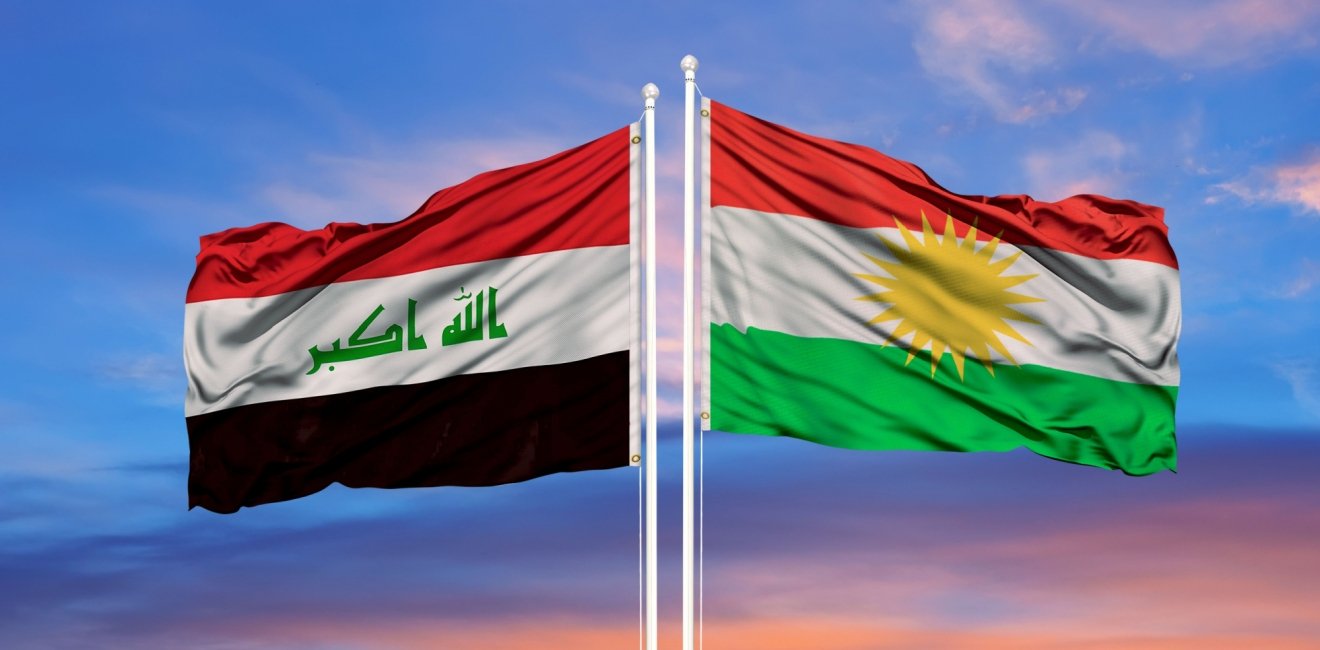One of the positive legacies of the US occupation of Iraq was the introduction of federalism in the country. That legacy is now being dismantled, as Baghdad whittles down the autonomy of the Kurdistan region and, above all, deprives it of its major independent revenue sources.
During its occupation of Iraq, the United States played a major role in writing the 2005 constitution. The document was hastily put together and certainly did not represent a consensus, or even a compromise, among Iraqis about what was best for the country. Many problems were left unsolved as a result.
Federalism’s false start
A notable feature of the constitution is that it introduced federalism not only to Iraq, but more broadly to the Arab world, where states have historically been heavily centralized. Iraqi federalism was shaky from the start. It was an asymmetrical federalism, with only one federal region, Kurdistan, in an otherwise centralized state. The parliament adopted laws that in theory made it possible for other provinces to be transformed into federal regions, with the same degree of autonomy as Kurdistan. But when a few provinces took the first step, Baghdad made sure the process would not continue.
The boundaries separating Kurdistan from the rest of Iraq were not clearly defined and there was a substantial contested area between Kurdistan and the rest of Iraq.
Even the autonomy enjoyed by the Kurdistan region was always challenged, with three major unresolved issues looming. First, the boundaries separating Kurdistan from the rest of Iraq were not clearly defined and there was a substantial contested area between Kurdistan and the rest of Iraq. Second, it was never established who was included in the population of Kurdistan, because Saddam Hussein had moved many Arabs into the region and the Kurds wanted them removed; Article 140 of the constitution provided for a process to establish who belonged in the region, but the process was never implemented.
Less discussed, although extremely important, the financial autonomy of the Kurdistan region was always tenuous. The issue hinged on control over Kurdistan’s abundant oil and gas reserves, and to a lesser extent on control over custom duties on imports into Kurdistan from neighboring countries, most importantly Turkey.
Control over oil
All three issues are unsolved to this day. The contested territory remains contested, and Article 140 has never been implemented and never will be. The Iraqi Council of Representatives never adopted a hydrocarbon law clarifying the respective power of the federal government and the KRG in managing oil reserves, including who had the right to sign contracts and export oil and gas from Kurdistan. In the absence of a federal law, the KRG adopted its own hydrocarbon law in August 2007.
That did not settle the issue. The law recognized the principles embedded in the constitution that hydrocarbon management was the responsibility of both the federal and the regional governments, but gave the regional government more extensive power, including over signing of contracts and oil sales, than the federal government was willing to accept. Despite the dispute, the KRG went ahead signing contracts with international oil companies and exporting oil through a new pipeline linking its oil fields to a Turkish pipeline leading from Fish Khabur on the Turkish-Iraqi-Kurdish border to the Turkish port of Ceyhan. The continued opposition of Baghdad meant that much of the Kurdish oil was sold at a discount, with ships occasionally stuck at sea and unable to offload the oil.
The KRG and Baghdad negotiated endlessly about the sales of Kurdish oil, with the KRG committing to deliver stipulated amounts of oil to SOMO, the Iraqi oil marketing organization and Iraq in return agreeing to provide a percentage of its budget to KRG. The agreements never lasted and were constantly renegotiated, with no enduring success.
The reaction of Baghdad and the entire international community [to the independence referendum] was completely negative.
The situation worsened considerably after September 2017, when the Kurdistan Regional Government (KRG) organized a referendum on independence, grossly misjudging its strength and the degree of international support it could receive. Internal support for independence was overwhelming: seventy-two percent of voters turned out and ninety-two percent of them voted for independence. The reaction of Baghdad and the entire international community was completely negative. Although the president of Kurdistan argued that the referendum was consultative only and that it would simply mark the beginning of a lengthy process of negotiations with Baghdad, the response in Iraq and abroad was universal condemnation of Kurdistan and rejection of the Kurds’ long-standing claims that they had a right to independence.
Centralization returns
Thus, rather than being a first step toward independence, the referendum became the first step toward the curbing of Kurdish autonomy and the dismantling of the Iraqi federal system. Baghdad immediately halted all oil exports from Kurdistan, stopped the KRG from collecting custom duties on foreign imports (a policy never officially sanctioned but tolerated for years) and seized control of the airports in Erbil and Sulaymaniyah—as a result, it had been possible until then for people to enter Kurdistan without an Iraqi visa.
More negotiations slowly allowed the resumption of oil exports from Kurdistan and reopened the airports for international travel, but under much stricter controls from Baghdad. The two sides also reached an agreement on the collection of custom duties, which again curbed the role of the KRG.
In February 2022, Baghdad made its long term intentions toward the KRG extremely clear when the Federal Supreme Court ruled that Kurdistan’s 2007 Oil and Gas Law was unconstitutional.
In February 2022, Baghdad made its long term intentions toward the KRG extremely clear when the Federal Supreme Court ruled that Kurdistan’s 2007 Oil and Gas Law was unconstitutional because it gave Kurdistan more control on hydrocarbons than the constitution allowed. It also ruled that the KRG should deliver all the oil it produced to SOMO for commercialization.
The KRG protested the ruling. But it had no leverage and in early 2023 it accepted the terms imposed by Baghdad to allow oil exports to resume. Yet, at the time of writing, oil exports had not resumed, because Turkey was refusing to reopen the pipeline until Baghdad dropped its demand that Turkey pays damages for allowing Kurdistan to export oil in the past—a ruling by the International Chamber of Commerce had made Turkey liable for such payment.
While the details of the case are somewhat arcane and enormously confusing, the most important conclusion is that Kurdistan has lost control of its oil, the only asset that could made its autonomy meaningful.
The slow dismantling of Iraqi federalism is a serious blow to Kurdistan. It is also a blow to the US attempt to curb the centralization that affects all Arab states. Such centralization encourages ethnic and sectarian conflict to fester in the Middle East, where all societies are plural.
The views expressed in this article are those of the author and do not express the official position of the Wilson Center.
A previous version of this article stated that the International Criminal Court issued a ruling making Turkey liable for back payment to federal Iraq after importing oil from the Kurdistan Regional Government. That ruling was issued by the International Chamber of Commerce.






